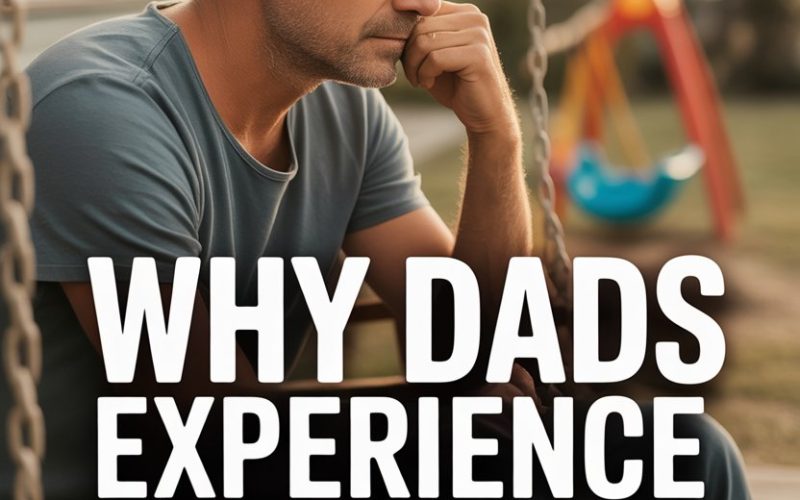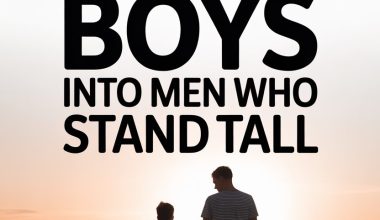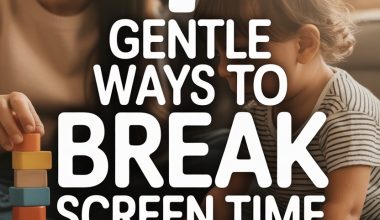Blink and you’ll miss it: the transformation from “fun dad” to “frazzled shell of a man who once had hobbies.”
Burnout isn’t picky about who it targets, but it does seem to have a unique flavor when it comes for dads.
You know the signs—a fridge stocked with energy drinks, a questionable “weekend beard,” and the mysterious appearance of dad-jokes that are really just thinly veiled cries for help.
Mums and dads both get tired. But the way burnout sneaks up, settles in, and wreaks havoc?
For dads, it often wears a different hat (usually backward).
The Invisible Backpack
Burnout doesn’t announce itself with a flashing sign. For many dads, it’s more like an invisible backpack—one filled with unspoken expectations, pressure to “provide,” and the vague memory of what self-care used to look like.
Traditionally, a lot of dads still feel they need to be the “rock.” (Not to be confused with Dwayne Johnson, who somehow manages to be everyone’s rock and still find time for the gym.)
This pressure isn’t always explicit. It’s woven into throwaway comments, office banter, and the way society cheers when a dad shows up at school drop-off like he’s just discovered fire.
A Pew Research Study found that nearly half of working fathers felt they didn’t spend enough time with their kids. Yet, they also reported feeling significant financial and emotional pressure to be “the provider.”
That’s a lot of weight on those dad shoulders, and it’s not always easy to spot.
Different Flavours of Guilt
Mum guilt gets plenty of airtime. Dad guilt can be more subtle, but just as corrosive.
Many dads feel torn between the desire to be hands-on and the expectation to be breadwinners. When time is tight and the to-do list looms larger than a toddler’s appetite, guilt creeps in.
Missed a school play for a work meeting? That’s the kind of memory that stays with you, filed neatly next to “forgot to sign up for soccer” and “didn’t notice the headlice letter.”
This guilt often festers quietly. After all, isn’t dad supposed to be “the fun one,” the fixer, the calm in the storm?
Admitting you’re running on fumes can feel like a betrayal of the role.
Communication: Not Always a Dad’s Forte
Women tend to have more social permission to talk about their exhaustion. Dads, on the other hand, might find their mates are more comfortable chatting about football scores than feelings.
A Men’s Health Forum survey revealed that men are far less likely to ask for help when they’re struggling, and much more likely to power through in stoic silence.
Not because they don’t want help, but because they often don’t have the words—or the safe space—to ask for it.
The result? Burnout gets bottled up, only to resurface in the form of grumpiness, withdrawal, or, worst-case scenario, a midlife crisis involving questionable wardrobe choices.
The Myth of Superdad
Superdad is everywhere. He’s in adverts, football stands, TV shows, and probably right next to you at Saturday morning swimming lessons. But he’s not real.
Many dads hold themselves to impossible standards, striving to be both “present parent” and “successful professional.”
It’s a badge-of-honour culture—no sleep, all hustle, and yes, I did build that bunk bed myself (don’t mind the wobble).
Trying to keep up with this mythical figure is a shortcut to exhaustion. And it doesn’t help that the world still occasionally treats dads as “babysitters” when they’re solo with the kids—like it’s an optional role.
Knock-on effect? Even more pressure to prove you’re doing it right.
Practical Ways to Reboot the Dad Battery
Dad burnout isn’t inevitable. It just requires a toolkit tailored to the unique stressors dads face.
The trick lies in small changes—things you can actually manage without rearranging the entire household schedule.
Share the Mental Load—Loudly
It’s not just about who does the school run. The real beast is the “mental load”—remembering dentist appointments, birthday parties, and which child’s favourite colour has changed this week.
Try a full family calendar (the kind that lives on the fridge or on your phone). And actually talk about what’s on it. This isn’t nagging. It’s teamwork.
When everyone knows what’s coming up, there’s less chance of one parent carrying the invisible admin at 2 a.m.
Micro-Breaks Are Not a Myth
Long weekends away might be rare. But 10 minutes can be life-saving.
A research from BBC finds that micro-breaks—those small pockets of time where you do absolutely nothing productive—can seriously lower stress.
Hide in the loo with a cup of tea. Listen to that podcast you like while walking the dog. Stand outside for five minutes and watch the clouds (or, more realistically, the neighbour’s cat do something weird).
These tiny moments recharge batteries in surprising ways.
Find the Dad Tribe
No one likes to admit they need mates after the age of 30, but human connection matters. And not just the “how’s work?” variety.
Plenty of dads’ groups now exist online and in person.
They’re not all about barbecuing or swapping toddler war stories (though there’s plenty of that). Some focus on mental health, fitness, or just blowing off steam in a judgement-free space.
Check for local groups, or try apps like Meetup to find your people. There’s something powerful about sharing a “me too” moment over a cuppa.
Break the Stoic Cycle
Old habits die hard, but vulnerability isn’t a dirty word.
If you’re running on empty, start small. Mention it to your partner. Text a friend. Or, if you like your advice with a side of dry humour, try the Dad AF forum.
Therapists aren’t just for “crisis mode,” either. More men are turning to therapy and coaching—not because they’re weak, but because they know fixing a problem starts with admitting it exists.
No one expects dads to be emotional superheroes.
Rituals Matter (Even Silly Ones)
Routines aren’t just for kids. Dads benefit from them too, even if it’s something as simple as Friday pizza night or a Sunday walk.
Small, predictable pleasures give shape to the week and offer something to look forward to.
It could be a favourite TV show, a regular phone call with a mate, or even Game Night (yes, Monopoly counts, even when it ends in tears and plastic hotels everywhere).
The point isn’t to create a highlight reel. Making time for things that matter—however small—buffers against the grind.
Redefining Success in the Dad Lane
No two families look the same, and neither does “dad success.” Maybe it’s about being at every netball match, or maybe it’s making the best pancakes on a Saturday morning.
Burnout thrives on comparison. Social media is a breeding ground for it—everyone’s life looks shinier through a Valencia filter.
Unfollow the “perfect dads” if you must, and focus on your own wins.
A Stanford study suggests the happiest parents are those who define family success for themselves, not by outside standards. Write your own script, even if it involves silly voices at bedtime.
Work-Life Boundaries: Not Just a Buzzword
Blurring the lines between work and home is a direct ticket to burnout. If the laptop is always open and the phone never leaves your hand, it’s no wonder you feel switched on 24/7.
Try setting up a dedicated “work zone” at home, no matter how small. Shut the door (or curtain, or strategically placed laundry pile) at the end of the workday. Announce it to the family: “Dad is off-duty now.”
You might not always stick to it, but setting the intention matters.
And yes, bosses are getting better about flexible working—it’s worth a chat, especially if you’re running on empty.
Sleep: The Unsung Hero
“Sleep when the baby sleeps” is a cruel joke for most dads. Still, even small tweaks can help.
If possible, tag-team with your partner for early nights or lie-ins. Swap chores for forty winks. Keep your phone out of the bedroom for a week and see what happens (spoiler: you might dream again).
The world’s problems look smaller after a half-decent kip.
Short on time? A Harvard Medical School review found that even short naps or improved sleep hygiene—think blackout blinds, cool rooms, and boring podcasts—improve mood and focus.
Kids Are Watching (And That’s a Good Thing)
Burnout isn’t just about dads. Children notice more than we think.
When dads model self-care, boundaries, and honesty about their limits, children learn resilience along the way.
Saying “I need a break” isn’t a sign of failure. It’s a lesson for little eyes that love isn’t measured by martyrdom.
When Burnout Needs Backup
Every dad’s breaking point looks a little different. If you’re struggling to get out of bed, losing interest in things you used to love, or feeling hopeless, it might be more than burnout.
Reach out to your GP, or check out Mind’s advice hub.
You’re not being dramatic. You’re looking after your family and yourself.
Dad Burnout: Not a Badge, But a Wake-Up Call
Burnout doesn’t mean you’re failing at fatherhood. It means you’ve been giving your all—and then some.
Dads are facing new pressures, and old ones haven’t vanished. The world needs dads who are present, playful, and occasionally a bit silly. Not perfect.
Take the invisible backpack off for a bit. Share the load. Accept help, give yourself permission to pace yourself, and, above all, laugh when you can.
Parenting will always be a bit bonkers, but it’s far better with a recharged dad behind the wheel.




